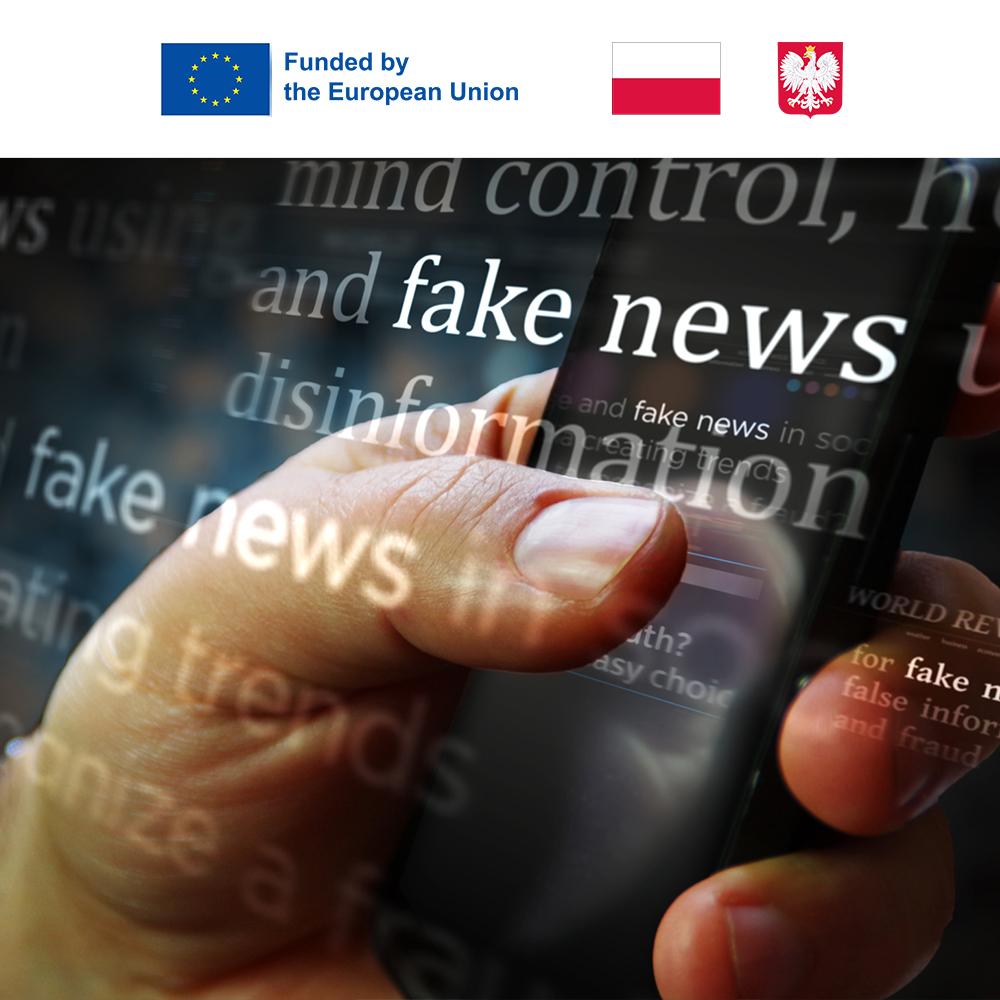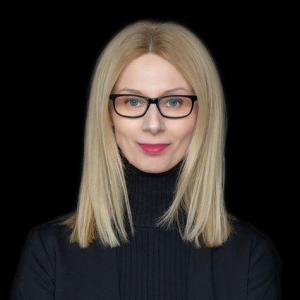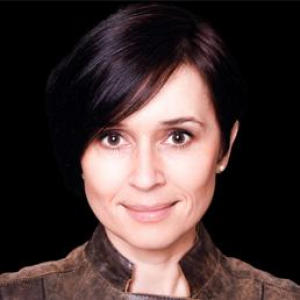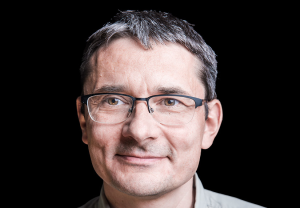
finished
CEDMOCentral European Digital Media Observatory

principal investigator / project leader
Ph.D. / Associate Professor
media researcher specializing in media theory and ethics of professional communication
Full bio project value: PLN 9,252,497
SWPS University’s budget: PLN 1,005,329
funding source: European Commission
funding source: Ministry of Education and Science
discipline: communication and media studies
location: Wrocław
duration: 2021 2022 2023 2024
The phenomenon of disinformation is one of the significant problems of contemporary societies. Central Europe is suffering the brunt of disinformation which, worldwide, is reaching unprecedented levels, on topics ranging from health to politics. The problem has become particularly significant in the context of Russian aggression on Ukraine. Research concerning fake news and preventive measures applied in this area should be multidisciplinary and transnational, because this phenomenon extends beyond the borders of countries and continents, while its thematic scope and structure are extremely complex. The Central European Digital Media Observatory (CEDMO) has been established to counteract the ubiquitous disinformation. To carry out this project, the consortium received a grant of PLN 9,252,497, including PLN 773,330 for SWPS University, provided by the European Commission from the Connecting Europe Facility (CEF) program, and PLN 231,999 from Poland’s Ministry of Education and Science from the Co-financed International Projects Program. Additionally, SWPS University has provided PLN 25,788 for the project.
Project assumptions
Using different methods, the Central European Digital Media Observatory will carry out international, multidisciplinary, large-scale research on the phenomenon of fake news and media disinformation. Moreover, the consortium will develop technical infrastructure enabling the implementation of daily fact-checking procedures and publication of trustworthy information reports carried out by media partners in their respective languages. The project will involve various stakeholders, including journalists, PR specialists, teachers, students, and parents, which will allow for access to unique data and alignment of our research with social needs.
The Central European Digital Media Observatory, established as a consortium, is a highly specialized multidisciplinary research and education hub, working against disinformation in the Czech Republic, Poland and Slovakia.
Members of the consortium include:
- Charles University in Prague (Czech Republic) – consortium leader
- Czech Technical University in Prague (CTU) (Czech Republic)
- University of Ss. Cyril and Methodius in Trnava (Slovakia)
- SWPS University (Poland)
- Kempelen Institute of Intelligent Technologies (Slovakia)
- Demagog.cz (Czech Republic)
- Agence France-Presse (France)
- Athens Technology Center (Greece)
Project objectives
The consortium will:
- research, develop and improve technological capabilities that employ AI tools, in fact checking activities
- implement a continuous process of information checking
- inform a wide range of media consumers about trustworthiness of particular stories and news
- analyze the impact of disinformation on society
- carry out an information campaign concerning media literacy and increase awareness about disinformation and fake news
- monitor the media landscape for disinformation to propose better regulation in this area
- communicate and disseminate the results of the project.
Project activities
CEDMO activities are grouped in eight thematic areas and SWPS University will participate in the following tasks:
Activity 2: Develop CEDMO’s website and the information flow structure
SWPS University will develop a communication strategy and tools for internal communication. The team will also supply materials for the repository and for the project’s website (in Polish and in English).
Activity 5: Analyses of the impact of disinformation on the society
We will carry out a series of extensive international and multidisciplinary research projects, with the use of social sciences and humanities methodology, such as in-depth interviews (IDI), computer assisted web interviewing (CAWI), computer assisted telephone interviewing (CATI), quantitative and qualitative discourse analysis, value analysis, as well as elements of mathematical modelling (to analyze dissemination of fake news). This will allow us to develop an extensive and exhaustive analytical landscape that will show us how media disinformation works in Poland, in the context of Central Europe, and the whole European Union (thanks to exchange of best practices and information within a larger European Digital Media Observatory (EDMO)).
SWPS University will coordinate research activities of the whole consortium and will prepare the majority of research reports. We will carry out research described in points 1–3 (Research objectives section), in Poland, and will develop methodological guidelines for the consortium partners. We will also oversee the content and the formal aspects of sub-contracting of research activities described in points 4–5 above.
Activity 6: Information campaigning focused on media literacy and the prevention of disinformation and fake news education
Our research results will be used in education campaigns concerning media literacy. Our innovative program, will take advantage of the latest and unusual tools. It will be addressed to various social groups and will be based on the latest research results emerging from this project. The stakeholders engaged in the campaign will include organizations, influencers, and experts, who have declared their support for the project. SWPS University will be responsible for the organization and implementation of these campaigns in Poland.
Researchers from SWPS University will:
- develop and publish handbooks for parents and teachers, which will be available online
- organize a training course and four webinars for teachers
- organize a training course for media professionals, such as journalists and PR specialists
- develop and publish educational videos and podcasts
- develop and publish audio-visual materials addressed to teenagers, created in collaboration with popular influencers.
Activity 8: Communication and dissemination of the results
SWPS University will develop reports on the situation in Poland and suggestions for the Polish administration.
Activity 8: Communication and dissemination
SWPS University will contribute to the development of the communication strategy and communication plan, conduct continuous strategic activities aimed at popularization of the project results in Poland (such as campaigns in social media, appearances in the media, presentations of the project during various events, etc.), and will provide materials for the publication on the project’s website and in social media. Representatives of SWPS University will participate in a conference in Prague. SWPS University will also organize a conference in Warsaw. Researchers from SWPS University will publish books and articles in high impact academic journals. They will also present research results during conferences in Poland and around the world.
Research methods
In this project, researchers will use various tools developed by experts specializing the field of Artificial Intelligence, such as Machine Learning (ML) and Natural Language Processing (NLP).
Research, carried out in collaboration with numerous researchers and research centers, will include the following topics:
- the impact of disinformation on various social groups, such as teachers and teenagers
- visual and linguistic structure of fake news
- attitudes and tools used by professionals, such as journalists, PR specialists, and entrepreneurs, related to the expansion of disinformation in various aspects of social activity
- models of fake news dissemination on the internet (developed with the application of mathematical modelling)
- geopolitical contexts of disinformation in the media.
Practical application of results
The research outcomes will include two conferences as well as publication of several monographs (including three monographs resulting from research carried out by the Polish research team), articles in peer-reviewed academic journals (including two articles concerning research conducted by the Polish team), and popular science publications. The results of our research will be communicated broadly as they emerge, and will be used in education campaigns, and in the fact checking process.
Thanks to the triangulation of the quantitative and qualitative methods, we will also develop a compendium including the information on broadcasters, structure, channels of distribution, addressees, and geopolitical contexts of disinformation in the media. This will be the first such comprehensive compendium on media disinformation, as other research projects conducted so far have been focused only on certain aspects of the phenomenon and were largely unstructured.
Furthermore, the project is conducive to establishing an ongoing institutionalized collaboration between SWPS University and research centers from other countries. It also aligned with the internationalization of our university in the area of communication and media studies and, more broadly, social sciences. Our researchers will share their knowledge on media disinformation and fake news internationally, promote Polish research abroad, and be inspired by studies carried out in other European countries, including the members of the larger EDMO project.
Target groups
Our main target groups include:
- media consumers
- school-age youth
- parents
- students, in particular students of journalism and communication studies
- teachers and educators
- activists
- journalists and other media professionals
- public relations specialists and press officers
- fact-checkers
- public administration officials at various levels of the government
- researchers specializing in social sciences and humanities.
Research team

Bąkowicz, Katarzyna
First and last name
Katarzyna Bąkowicz
Academic degree or title
Ph.D. / Assistant Professor
Email
This email address is being protected from spambots. You need JavaScript enabled to view it.
Role in the Faculty
{"funkcja-na-wydziale0":{"Funkcja":"","\u0141\u0105cznik":"","Nazwa w mianowniku":"Faculty of Social Sciences in Warsaw"}}
Role in the Department
{"funkcja-w-katedrze0":{"Funkcja":"","\u0141\u0105cznik":"","Nazwa w mianowniku":"Department of Journalism and Social Communication"}}
Role in the Institute
{"funkcja-w-instytucie0":{"Funkcja":"","\u0141\u0105cznik":"","Nazwa w mianowniku":"Institute of Social Sciences"}}
Institute
Institute of Social Sciences
Discipline
communication-and-media-studies
Specialization
communication and media researcher
Role in the Research Center
[]
Ph.D. / Assistant Professor Katarzyna Bąkowiczcommunication and media researcher

Jurasz, Maria
Specialization
social communication researcher
First and last name
Maria Jurasz
Email
This email address is being protected from spambots. You need JavaScript enabled to view it.
Ph.D. / Assistant Professor Maria Juraszsocial communication researcher

Obszarny, Magdalena
Specialization
journalist and television presenter
First and last name
Magdalena Obszarny
Role in the Faculty
{"funkcja-na-wydziale0":{"Funkcja":"","\u0141\u0105cznik":"","Nazwa w mianowniku":"Faculty of Law and Communication in Wroc\u0142aw"}}
Role in the Department
{"funkcja-w-katedrze0":{"Funkcja":"","\u0141\u0105cznik":"","Nazwa w mianowniku":"Department of Journalism and Social Communication"}}
Academic degree or title
M.A. / Teaching Assistant
Email
This email address is being protected from spambots. You need JavaScript enabled to view it.
Discipline
communication-and-media-studies
Role in the Research Center
[]
M.A. / Teaching Assistant Magdalena Obszarnyjournalist and television presenter

Wenzel, Michał
Specialization
sociologist, specializing in methodology of social research, political attitudes and social aspects of mass media
First and last name
Michał Wenzel
Academic degree or title
Ph.D. / Associate Professor
Email
This email address is being protected from spambots. You need JavaScript enabled to view it.
Discipline
political-science-and-public-administration
Institute
Institute of Social Sciences
Position
profesor uczelni
Role in the Institute
{"funkcja-w-instytucie0":{"Funkcja":"","\u0141\u0105cznik":"","Nazwa w mianowniku":"Institute of Social Sciences"}}
Role in the Faculty
{"funkcja-na-wydziale0":{"Funkcja":"","\u0141\u0105cznik":"","Nazwa w mianowniku":"Faculty of Social Sciences in Warsaw"}}
Role in the Department
{"funkcja-w-katedrze0":{"Funkcja":"","\u0141\u0105cznik":"","Nazwa w mianowniku":"Department of Sociology"}}
Role in the Research Center
[]
Ph.D. / Associate Professor Michał Wenzelsociologist, specializing in methodology of social research, political attitudes and social aspects of mass media

Wołodźko, Tomasz
Role in the Faculty
{"funkcja-na-wydziale0":{"Funkcja":"","\u0141\u0105cznik":"","Nazwa w mianowniku":"Faculty of Law and Communication in Wroc\u0142aw"}}
Role in the Department
{"funkcja-w-katedrze0":{"Funkcja":"","\u0141\u0105cznik":"","Nazwa w mianowniku":"Department of Journalism and Social Communication"}}
Specialization
media researcher, radio journalist
First and last name
Tomasz Wołodźko
Academic degree or title
M.A. / Teaching Assistant
Email
This email address is being protected from spambots. You need JavaScript enabled to view it.
Discipline
communication-and-media-studies
Role in the Research Center
[]
M.A. / Teaching Assistant Tomasz Wołodźkomedia researcher, radio journalist